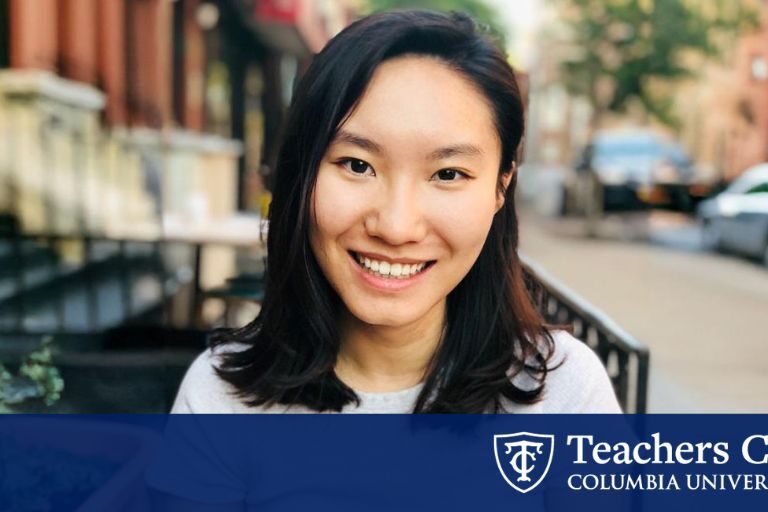ChatGPT was released to the world in the middle of Yipu Zheng’s dissertation research, which explored how natural language processing could be used to visualize a student’s learning trajectory in project-based learning. The generative artificial intelligence bot changed education seemingly overnight, as teachers and administrators scrambled to adapt to the new tech. For Zheng — a doctoral student advised by Paulo Blikstein, Associate Professor of Communication, Media and Learning Technologies Design — the arrival of ChatGPT sparked the question, “How can I build tools to empower teachers?”
Her answer was Curiously (formerly CurioAI), a no-coding platform that gives teachers the tools they need to build trustworthy customized AI learning companions for their classes. “Teachers know their students the best,” says Zheng. “However, they might not have enough knowledge about cutting edge [technological] advancements to navigate these changes.”
Developed with the support of Blikstein, director of the Transformative Learning Technologies Lab, Curiously won the Catalyst Prize at the 2024 Learning Engineering Tools Competition, a prestigious EdTech competition that distributed more than $8 million to cutting-edge EdTech solutions. In addition to that honor, Zheng was awarded a Provost Grant for Innovation for Learning and Teaching for the Columbia School of Engineering.
“Most AI tools today are built by people with little knowledge of how people learn, with business interests coming before the well-being of children,” says Blikstein. “We do exactly the opposite: put young people first and use technology to empower — not replace or deprofessionalize — teachers.”
Through the support of these grants, Zheng was able to build an AI teaching assistant for a graduate-level Industrial Engineering & Operations Research course taught by Senior Lecturer Hardeep Johar at Columbia this semester, providing invaluable user data and feedback to refine the tool and ensure it’s meeting the needs of teachers and students. Funding will also support continued testing and refinement, in partnership with Blikstein’s lab.
“My dream is to see teachers create AI learning companions that work well for their classrooms and for their students,” says Zheng.
This is just the beginning of bringing AI into education, learning and teaching
Yipu Zheng
How Curiously is different from ChatGPT
One of the biggest downfalls of generative AI tools like ChatGPT is the tendency to hallucinate information and confidently give incorrect answers. While Zheng’s program is created using the GPT-4 large language model it also utilizes Retrieval Augmented Generation, a technique that uses a verified knowledge base to improve outputs. This means that educators can be assured the chatbot’s outputs are trustworthy and in line with their course material, because they can upload their class materials, lecture transcriptions, and any other resources to Curiously’s data repository, which is then used as a reference point when the bot is respond to prompts.
Because Zheng is interested in creating a tool that provides continued learning opportunities, Curiously’s assignment system — which was designed to guide students through their course assignments — doesn’t provide direct answers the way ChatGPT would. Even if a student asks the chatbot to provide an answer, it will instead offer hints and guides to find the solution, all of which were developed by the professor and course teaching assistant.
Recognizing concerns about data privacy and reuse, Curiously also employs best practices for data security and privacy, even in its early stages. Teachers have full control over what information they share, if any, and uploaded materials aren’t accessed for any function other than enhancing a specific chatbot, according to Zheng.
(Photo: iStock)
Expert feedback is critical to build a trustworthy AI learning tool
In addition to her years of foundational doctoral research in AI in education, the version of Curiously currently in beta testing required six months of development. As Zheng moved through the process, she realized that while “it’s not hard for anyone to create a chatbot for learning, it’s very hard to create a good one.” According to Zheng, creating a relatively functional tool was faster than expected but the refinements and redesigns needed to turn Curiously into a trustworthy learning tool took a very long time.
“The development of generative AI technology is less controllable compared to traditional software development,” says Zheng. “It requires a lot of testing and a lot of communication with domain experts.” Being able to pilot the tool and get detailed feedback from the course Teaching Assistant provided much needed insight to ensure that Curiously is helping students have enriching learning experiences to better understand course concepts, instead of giving them a shortcut.
“This is just the beginning of bringing AI into education, learning and teaching,” says Zheng. And it’s just the beginning for Curiously, which is currently recruiting more teachers for continued testing and collaboration.
— Sherri Gardner
Published Monday, Oct 14, 2024

